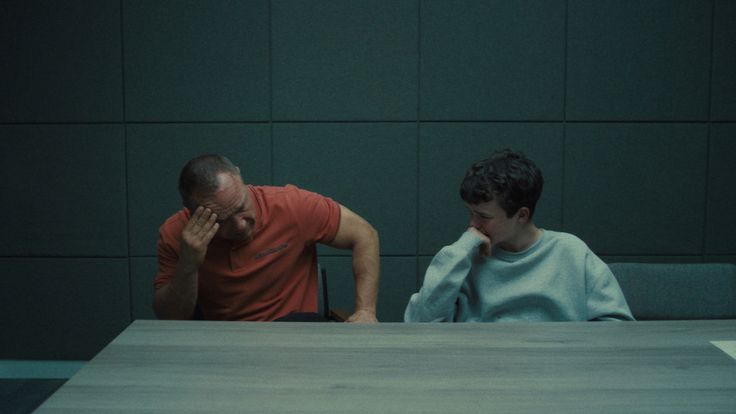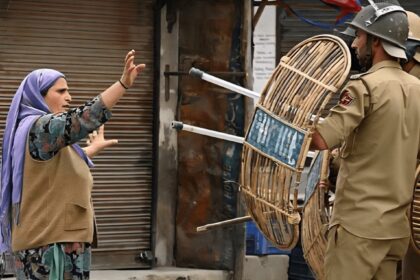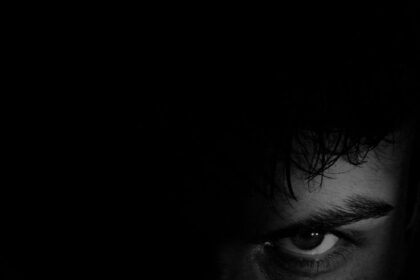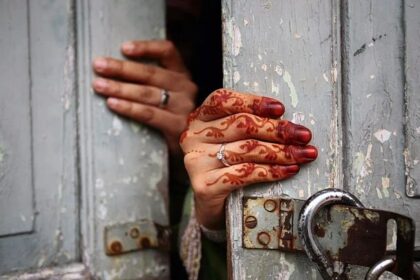“I’ve done nothing wrong.”
Jamie Miller’s repeated insistence in Adolescence (2025) isn’t a defense—it’s his reality. At just 13, he is already so deeply radicalized that he sees his actions not as a crime but as justified. His story is fictional, but the world that shaped him is very real.
Netflix’s Adolescence doesn’t solve the murder—it grapples with why it took place. And central to the inquiry is an uncomfortable reality: teenage boys are being groomed online into misogyny, violence, and entitlement.
Andrew Tate, the Manosphere, and the Radicalization of Boys
Jamie’s descent into misogyny echoes a growing crisis: the rise of the “manosphere.” This term refers to a network of online communities that promote male supremacy, resentment toward women, and regressive gender roles. Figures like Andrew Tate, along with countless lesser-known influencers, have created vast online platforms preaching male supremacy, dominance, and resentment toward women. These spaces—incel forums, YouTube channels, Discord servers—act as breeding grounds for radicalization.
Their message is simple but effective:
Women are the enemy. They are blamed for rejecting men, for controlling society, for everything wrong in young men’s lives.
Masculinity equals dominance. Power, aggression, and control are glorified, while empathy and vulnerability are ridiculed.
Violence is justified. Whether through coercion, physical aggression, or outright assault, these spaces normalize the idea that men are entitled to control women’s bodies and choices.
This is the world Jamie has been consuming. And it’s the same world shaping millions of boys today.
Why are teenage boys falling into this?
Jamie’s crime isn’t just a moment of rage—it’s the final step in a process that begins in the shadows of the internet. It mirrors real-life cases where boys, radicalized by online misogyny, have committed horrific acts of violence.
Jamie is not an anomaly. He is a product of a system that continues to fail young boys while endangering women and girls.
But why do boys like Jamie embrace these ideas? The reality is more complex than simply labeling them as villains. Many young boys who fall into the manosphere are not inherently hateful—they are lonely, insecure, and searching for guidance. In a world where conversations around masculinity often focus on what not to be, figures like Tate fill the void by offering a clear, albeit toxic, definition of manhood.
If boys are taught that success is measured by power over women, then failure in relationships becomes a personal humiliation. This toxic equation leads to resentment, and that resentment—if left unchallenged—can spiral into violence.
A Silent System: How Society Fails Boys and Girls
One of the most chilling aspects of Adolescence is its portrayal of silence. Jamie constantly asks for his father, not his mother—an early sign of his internalized beliefs about women. The female detective is barely acknowledged in the school investigation. His mother and sister remain voiceless, overshadowed by his father’s dominance.
The show doesn’t just depict misogyny—it exposes how deeply ingrained it is in society, how easily boys like Jamie absorb it, and how often women’s voices are ignored in these conversations.
Rejection shouldn’t lead to death or violence.
One of the most insidious lies spread by the manosphere is that rejection is a form of humiliation that must be avenged. Boys are taught that their worth is tied to how many women desire them, and if they fail to gain attention, the fault lies with women—not themselves. Figures like Andrew Tate exploit these insecurities, telling boys that rejection isn’t just personal—it’s part of a feminist conspiracy to weaken men.
Jamie, like many real-life boys, internalizes this message. He views Katie’s rejection as an attack on his masculinity, something that needs to be corrected through dominance and violence. But Adolescence (2025) makes one thing clear: this entitlement is learned.
Rejection is a normal part of life. It does not lead to violence—what leads to violence is a culture that tells boys they are owed something from women. That if they don’t get what they want, they are victims. That the answer to their pain is not self-reflection but aggression.
The truth is, rejection does not make boys weak. It does not mean they are failures. What makes them weak is allowing their emotions to be hijacked by those who profit off their anger. Society must teach boys that their value isn’t tied to how women perceive them—because until we do, the cycle of misogyny and violence will continue.
Why Is This Conversation Urgent?
The rise of influencers like Andrew Tate isn’t just an internet trend—it’s a global crisis. Right now, boys in schools everywhere are consuming misogynistic content, learning that women are beneath them, and believing that violence is a solution.
If we don’t act, Jamie’s story won’t stay fictional. It will keep repeating itself.
To combat this, we must:
Regulate social media algorithms that promote extremist content. These platforms profit from keeping users engaged, even when the content fuels hate.
Educate boys on media literacy and emotional intelligence. They need to learn to question what they consume, express their emotions in healthy ways, and reject toxic masculinity.
Increase parental supervision and involvement. Parents must play an active role in monitoring their children’s online activities, initiating open discussions about the content they engage with, and fostering critical thinking. Ignoring or dismissing these influences only allows them to take deeper root.
Shift the focus onto victims. Too often, violent men become the center of discussion while their victims fade into the background. We must change that narrative.
Conclusion:
Jamie is the result of a culture that normalizes entitlement, resentment, and violence against women.
This isn’t just about a TV show. It’s a warning. It’s about the boys in our schools, the content they consume, and the unchecked rise of digital hate. We can’t afford to dismiss this as an internet problem—it’s a societal one. Until we start having real conversations about male radicalization, holding tech platforms accountable, and teaching boys a healthier way to navigate rejection and emotions, we will continue to see real-life Jamies emerge.
















